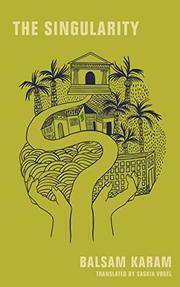This astringent, fuguelike novel by Kurdish-born Swedish author Karam opens with an unnamed woman who’s long been on a desperate search for her missing daughter. She walks the streets of a beach town, haunting a corniche where “The Missing One” worked at a restaurant. When the mother’s efforts prove too futile to bear, she leaps from the edge of the corniche. That incident has a witness, a pregnant tourist whose child will later die in utero. Karam interweaves the stories of the two women, connecting them almost to the point of blurring their lives together. The pregnant woman is a refugee from state violence, and the woman searching for her daughter leaves behind three children living in a nearby lot, surviving mainly on the goodwill of a greengrocer. (Karam draws a stark distinction between the well-off habitués of the shops along the corniche and the refugees who live near it.) The plot details here aren’t as crucial, though, as the mood of oppression, particularly toward women, and Karam’s various means of conjuring it. She bounces around timelines, plays with point of view (the pregnant woman is “you”), and interweaves the two women’s voices within extended passages. The “singularity” of the title refers to the force in astrophysics that “pushes bodies together and renders the distance between them nil,” a meaningful metaphor for two women similarly bereft. Translator Vogel deftly manages Karam’s rhetorical shifts while preserving the mood of disorientation. The book doesn’t resolve its central crisis so much as suggest that such crises are all-pervasive, and that migrants will continue to absorb abuses that are bigoted at best and fatal at worst.

